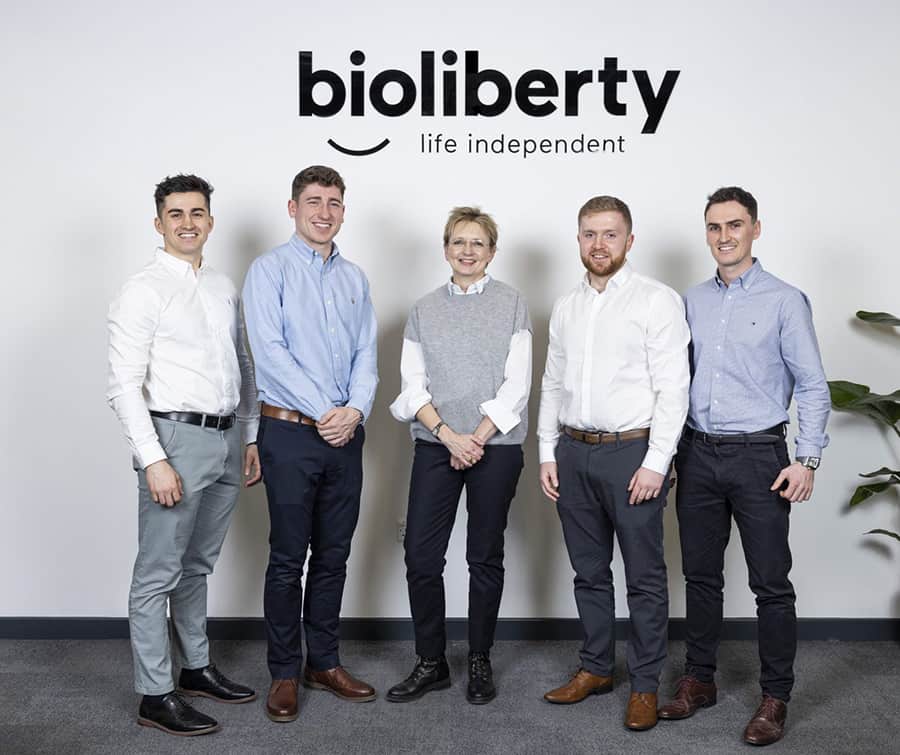Soft robotic glove that supports therapists to manage patients remotely secures £2.2m

Scottish technology firm Bioliberty has secured £2.2 million in funding to develop a unique soft robotic glove, Lifeglov, which can restore upper limb mobility in patients following a stroke.
Lifeglov offers rehabilitation for both the closing and opening strength of the hand. The glove monitors key metrics related to upper limb mobility and can show improvement as the patient progresses through their rehab.
Lifeglov is accompanied by a digital therapy platform, which provides the patient with tailored exercises to help develop natural hand strength. For stroke survivors, the glove helps carry out rehabilitation from the home. For therapists, the glove is a tool to help manage their patients remotely and improve patient outcomes.
Lifeglov is pliable, comfortable, and complementary to the upper arm while further generating useful data related to stroke recovery.
Rowan Armstrong, CEO at Bioliberty, said: “Our aim at Bioliberty is to empower every human to live a longer independent life by providing assistive robotics and rehabilitative technologies. The Lifeglov is a first step on this journey and the funding announced today will allow us to complete its development, along with our software platform. We’re confident in our technology and excited by the benefits it can deliver for both patients and occupational therapists.”
The new multi-million-pound funding will allow Bioliberty to complete development of the trial product and finalise the development of its platform. The funding round was led by Archangels, with participation from Eos Advisory, Old College Capital, and Hanna Capital SEZC.
Although Lifeglov’s initial application is in the upper limb rehabilitation area, it is anticipated that the technology will have a broad range of clinical applications including lower limb.
Niki McKenzie, Joint Managing Director at Archangels, commented: “Bioliberty has developed a highly effective solution for helping patients with hand weakness, with the potential to improve the quality of life for millions worldwide.
“We believe its technology has far-reaching benefits beyond this first application, providing the business with an excellent opportunity to grow quickly from its base here in Scotland. Archangels is excited to be supporting the team as they finalise what we hope will be the first of many products and start scaling up their sales activity.”
Staff and research students from the University of Strathclyde are harnessing the power of current and developing assistive technology to improve rehabilitation outcomes for stroke patients, such as a treadmill with a harness to support those with balance or mobility issues and games with adapted controllers that help to recover dexterity. Learn more about the university’s stroke rehabilitation work here.

